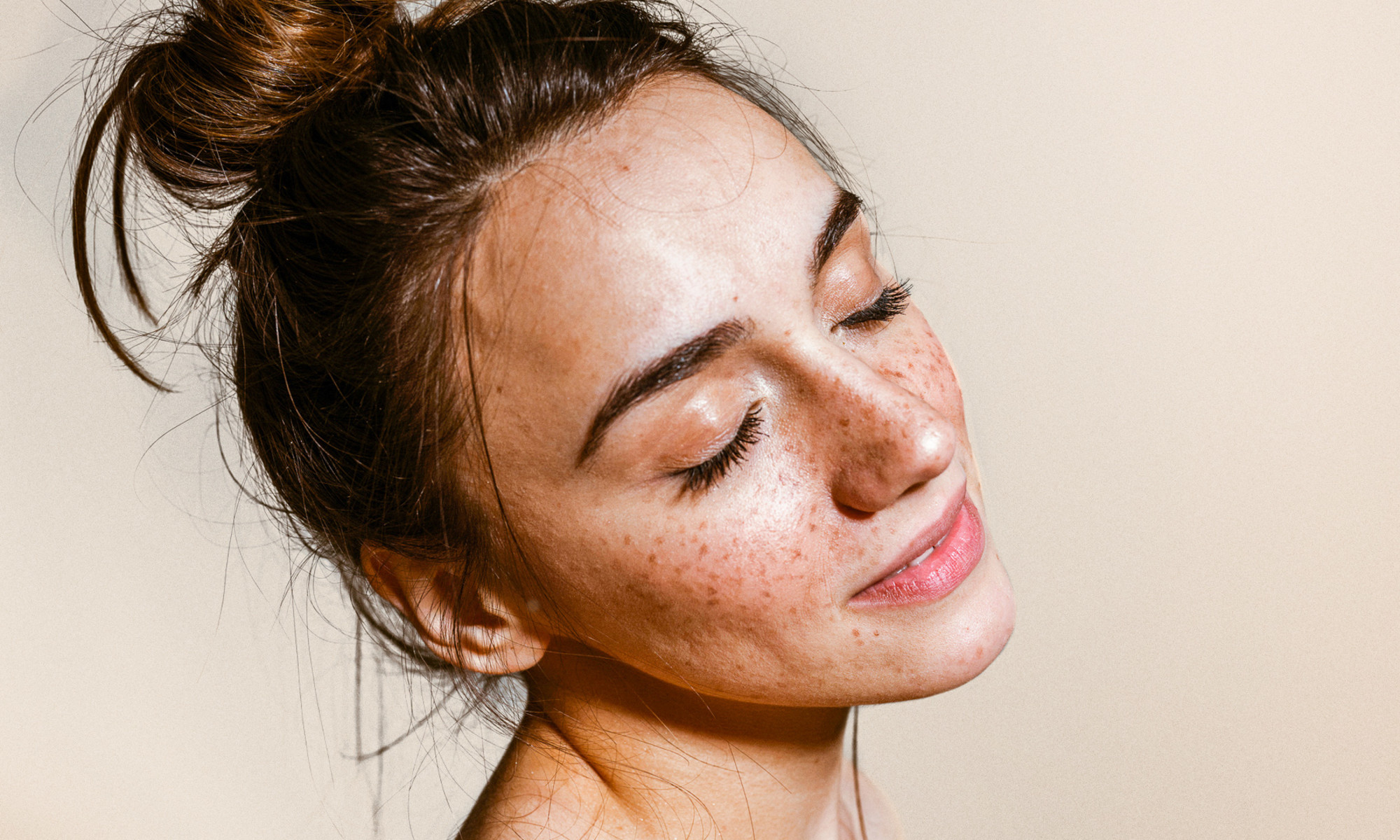8 Best Yoga Poses for Erectile Dysfunction and Premature Ejaculation
Erectile dysfunction (ED) is a condition that affects millions of men worldwide, often leading to stress, anxiety, and strained relationships. While it’s commonly treated with medications, there’s a growing interest in natural alternatives like yoga. Yoga, known for its...
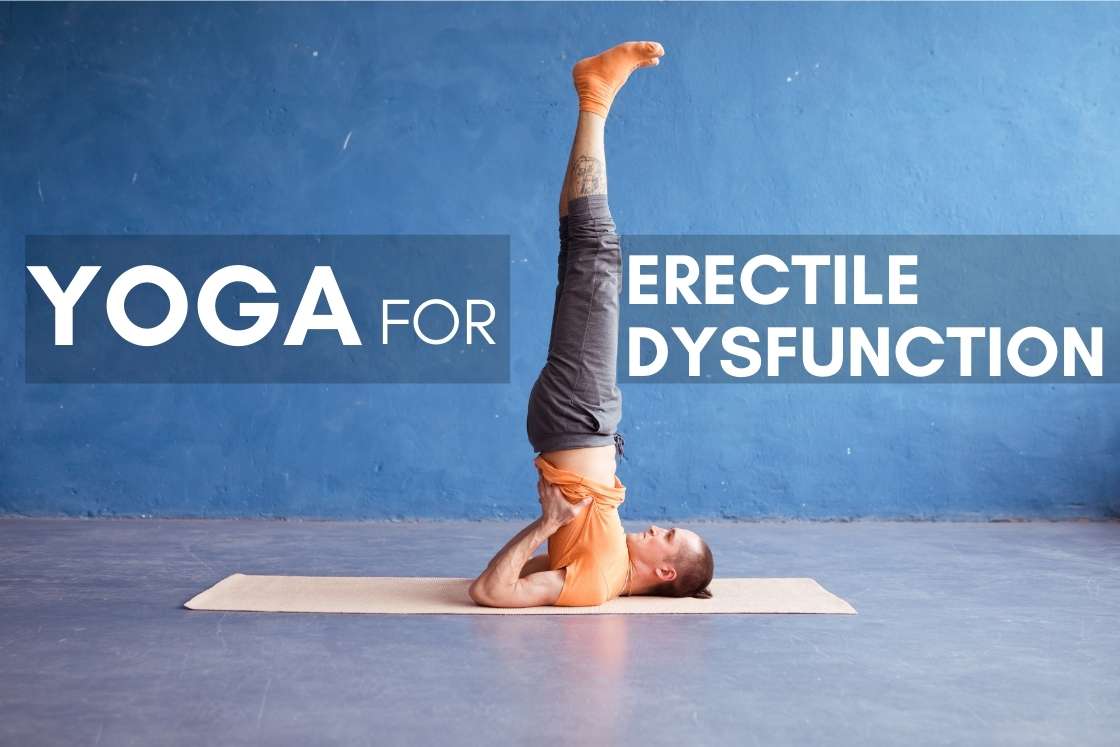
>>Download Yoga Mudras Free PDF!
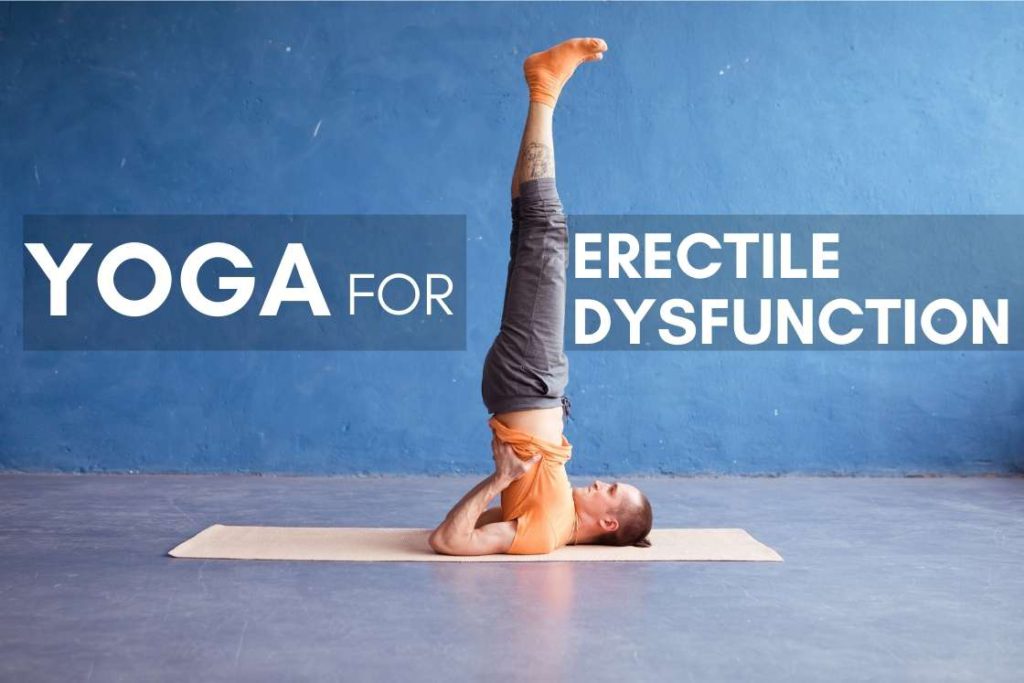 Image: Canva
Image: CanvaErectile dysfunction (ED) is a condition that affects millions of men worldwide, often leading to stress, anxiety, and strained relationships. While it’s commonly treated with medications, there’s a growing interest in natural alternatives like yoga. Yoga, known for its holistic approach to health, has been proven to positively impact the physical and psychological factors contributing to ED. By improving blood flow, reducing stress, and enhancing hormonal balance, yoga offers a safe, side-effect-free way to manage and potentially reverse erectile dysfunction.
In this article, we’ll explore how yoga can help address the root causes of ED, specific poses that target the physical and mental triggers of the condition, and the science behind yoga’s effectiveness in enhancing male sexual health.
How yoga can help you with erectile dysfunction?
Erectile dysfunction occurs when the body fails to deliver enough blood to the penis to achieve or maintain an erection. This process involves a complex interaction of psychological, neurological, hormonal, and vascular systems. Yoga works by addressing these factors holistically, rather than treating just the symptoms.
Improving Blood Flow: Several yoga poses focus on enhancing circulation, particularly to the pelvic region. Good blood flow is critical for erectile function, and certain poses help open up the hips, relax tense muscles, and improve the vascular health needed for a strong erection. Reducing Stress and Anxiety: Stress and anxiety are leading psychological causes of erectile dysfunction. The practice of yoga includes meditation and breathing techniques (pranayama) that calm the nervous system and promote relaxation. This, in turn, helps men better manage stress and reduce performance anxiety, two key factors in stress-induced ED. Balancing Hormones: Yoga can help regulate the endocrine system, which plays a key role in testosterone production and overall sexual health. Low testosterone levels can lead to reduced libido and erectile difficulties. Yoga poses such as Cobra Pose (Bhujangasana) are known to stimulate hormone secretion and improve sexual vitality. Strengthening the Pelvic Floor: Certain yoga poses target the pelvic floor muscles, which play a critical role in achieving and maintaining erections. Strengthening these muscles can prevent premature ejaculation and improve sexual performance. Poses like Bridge Pose (Setu Bandhasana) and Kegel exercises are excellent for this purpose.Best yoga poses for erectile dysfunction
Practice these 6 yoga poses to promote relaxation in pelvis muscles, which can help manage ED and premature ejaculation.
1. Half lord of the Fishes Pose (Ardha Matsyendrasana)
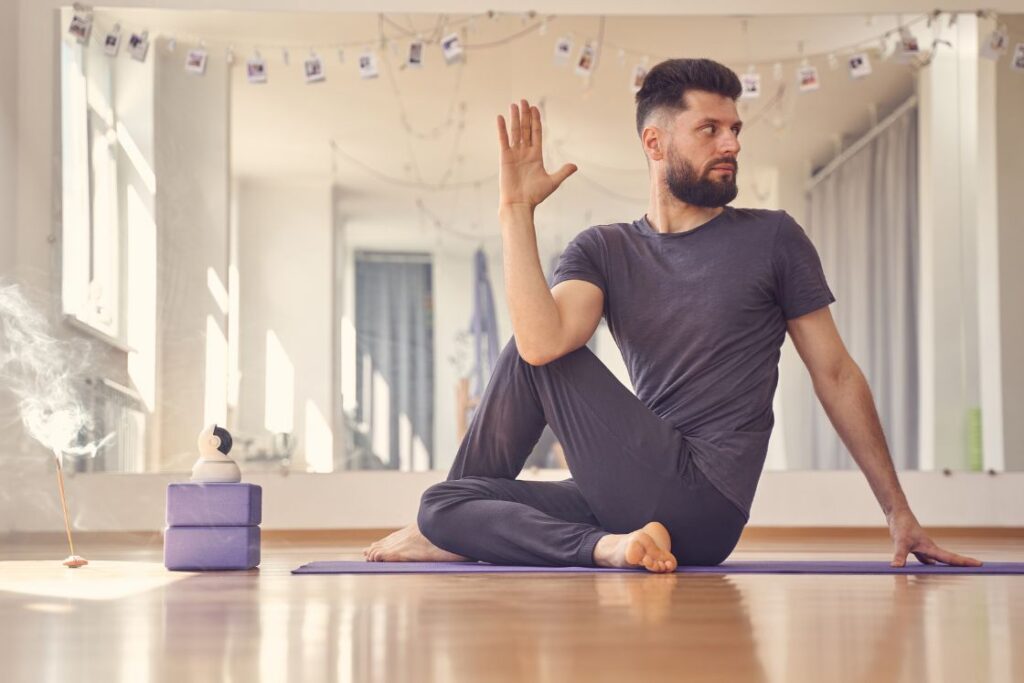 Image: Canva
Image: CanvaThis pose is an excellent spinal twist that will help your nervous system function better. Practicing this pose will ensure that your parasympathetic nerves are relaxed and healed, allowing them to carry the signals that lead to an erection. Relaxed nerves will also promote healthy testosterone levels. The abdominal twist will further encourage healthy hormonal activity in your abdominal region.
Sit in a staff position. Bend your right knee. Fold your left leg and bring your left foot from under your right knee to your right side. Press your left heel against your right sitting bone. Place your right foot over your left knee, with the heel of your right foot pressed against your left knee. Hold your right knee with your left hand, twist your torso, and turn to your right. Turn 90 degrees to your right and plant your right palm on the ground behind your buttocks to lock your position. Take 5-7 breaths and repeat the twist on the other side.Initially keep a support right behind you. Something you can hold on to and pull your twist. This keep your twist stable, and reduce chances of injury.
2. Butterfly pose (Baddha konasana)
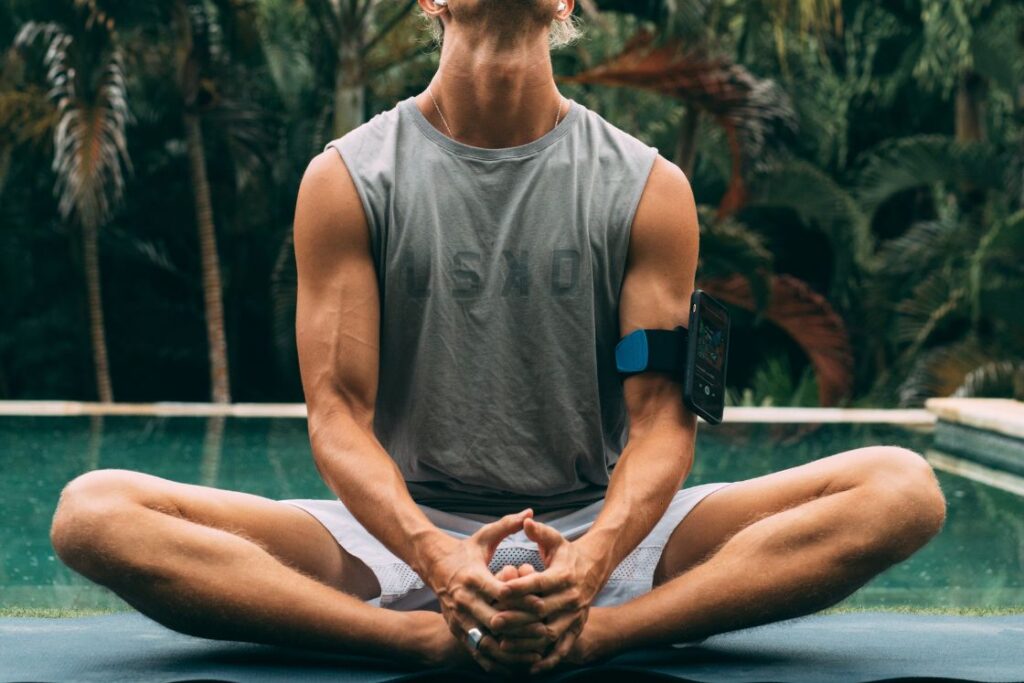 Image: Canva
Image: CanvaThe Butterfly Pose helps open up the groin and pelvic floor, relaxing the soft tissues in the area and promoting proper blood flow. Adequate blood flow to the pelvic region supports erections. Additionally, the Butterfly Pose stimulates the prostate gland and encourages healthy testosterone production.
Sit in a cross-legged position. Open your legs and bring the soles of your feet together in front of your groin. Clasp your hands around your feet and draw them closer to your groin, almost touching but not fully. Avoid letting your knees drop to the ground. Keep a comfortable distance between your knees and the floor. Keep your back straight and your shoulders relaxed. Look straight ahead and gently lean forward about 10 degrees. Stay in this position for as long as comfortable. About 30 seconds will provide benefits, but you can hold the pose longer if it feels comfortable.It’s important to keep your knees off the ground. Letting them drop can strain your groin. To prevent this, place yoga blocks under each knee, which will also allow you to hold the pose longer without straining your groin.
3. Kegel muscle squeeze
Your Kegel muscles are crucial to almost all penile functions, including maintaining your erection. These muscles play a key role in helping you achieve and sustain an erection, as well as reducing the chances of premature ejaculation.
Lie supine with your arms stretched out or by your sides. Bend your knees so your feet are flat on the floor. Locate your Kegel muscles, these are the pelvic floor muscles you use to control urination and ejaculation, and also to withhold them. Contract your pelvic Kegel muscles as if you’re trying to draw your penis inward. Hold the contraction for 5 seconds, then release. Next, feel your anal Kegel muscles and contract them inward. Hold the contraction for 5 seconds and release. Repeat the contraction of both types of Kegel muscles about 10 times.These exercises strengthen your Kegel muscles, which are designed specifically to support better penile function and overall sexual health.
4. Boat pose (Navasana)
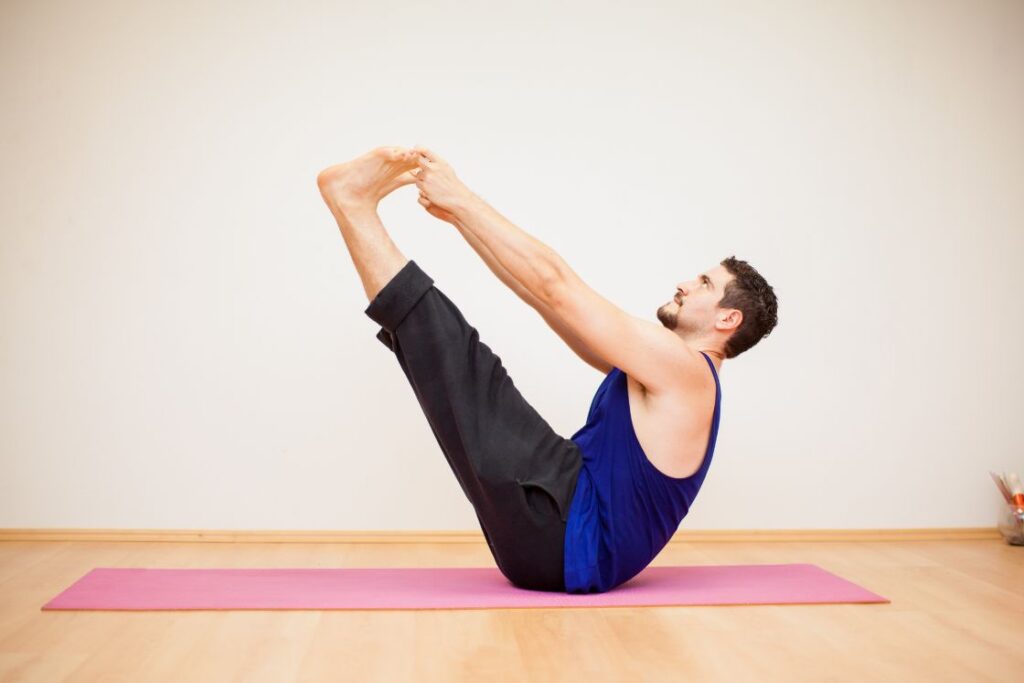 Image: Canva
Image: CanvaBoat Pose is excellent for strengthening the entire group of muscles involved in various penile functions. This exercise helps reduce the risk of internal injuries and can also assist in healing any existing ones. Additionally, Boat Pose builds significant core strength.
Sit in a staff pose with your legs extended in front of you. Bend your knees, keeping your legs hip-width apart. Hold your hamstrings with your hands and lean back slightly. Lean back just before your tailbone touches the floor. Keep your upper body still while lifting your lower legs from the knees. Raise your lower legs so they are parallel to the ground. If you feel strong enough, release your hands and balance them by the sides of your knees. Hold the pose for 5 breaths, then repeat the pose 3 times.Initially, you might feel a slight sideward pull on your thighs, which you’ll need to resist by keeping your knees joined. To help with this, you can use a yoga belt to keep your thighs together.
5. Wind relieving pose (Apanasana)
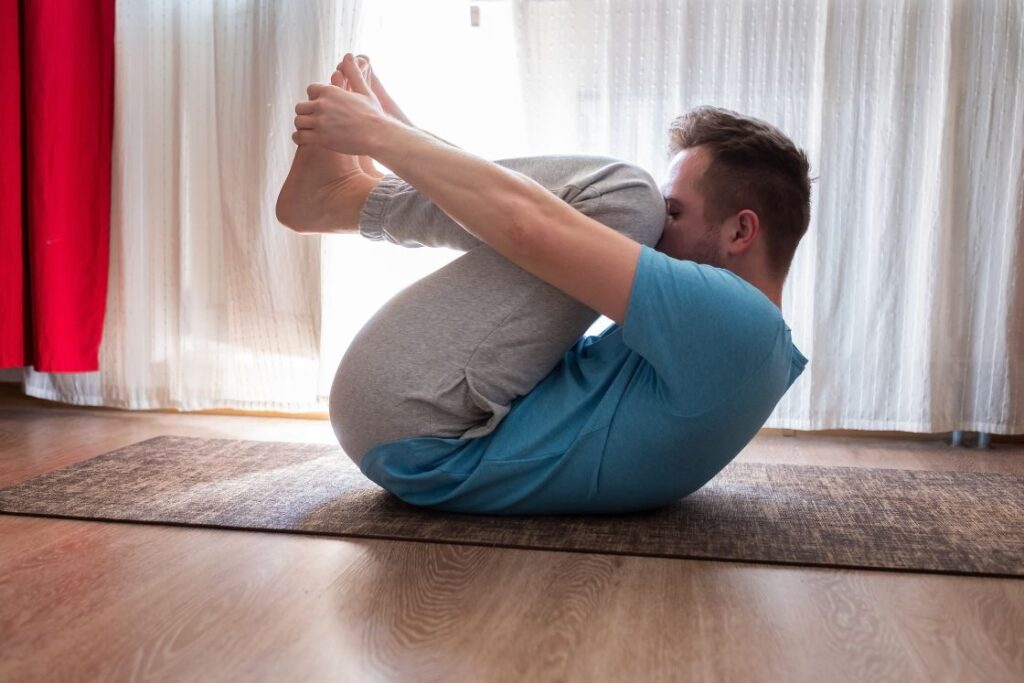 Image: Canva
Image: Canvahe Wind Relieving Pose is primarily designed for abdominal benefits. However, if you have an underlying abdominal disorder contributing to erectile dysfunction, this pose can be particularly helpful. It also increases blood flow to the pelvic region and helps relieve stress.
Lie supine on the ground. Bend your knees and bring them together. Draw your knees closer to your chest and wrap your arms around them. Pull your knees firmly toward your chest. Lift your head and tuck it into your knees while stretching your toes outward. Hold for 5 steady breaths, then release and return to a supine position. Repeat the pose 5 times.Forcefully tucking your head into your knees can strain your neck or spine. To avoid injury, as you enter the pose, release one hand from your knee hug and place it under your head for support.
6. Forward seated bend (Paschimottanasana)
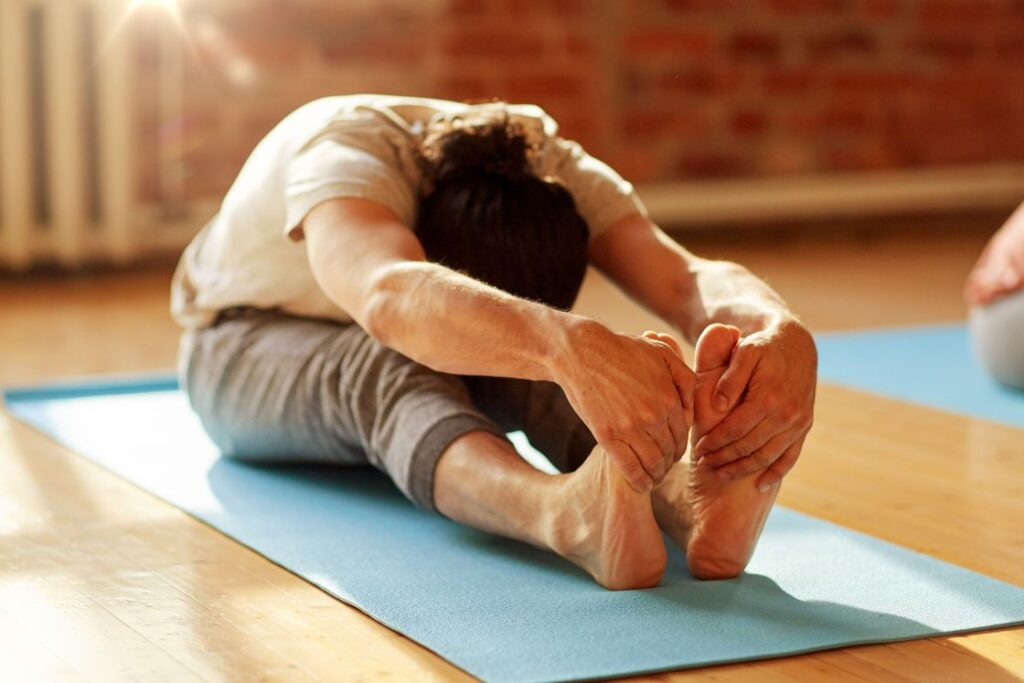 Image: Canva
Image: CanvaThe Forward Seated Bend is an excellent pose for relaxing and loosening tense pelvic muscles. Tight pelvic muscles can create pressure on the blood vessels that supply your penis, which may restrict the blood flow needed for an erection. This pose also acts as a stress reliever.
Start by sitting in a staff position, with your legs extended in front of you. Keep your upper body straight as you begin to bend forward towards your knees. The goal is to bend until your head touches your knees. For support, hold the sides of your knees with your hands. Do not bend your knees throughout the entire pose. Hold the position for 5 breaths. Repeat the bend 5 times.If your knees tend to bend despite your efforts, or you feel strain around your kneecaps, do not force the pose. Bend your upper body only as far as you can without bending your knees.
7. Cobra pose
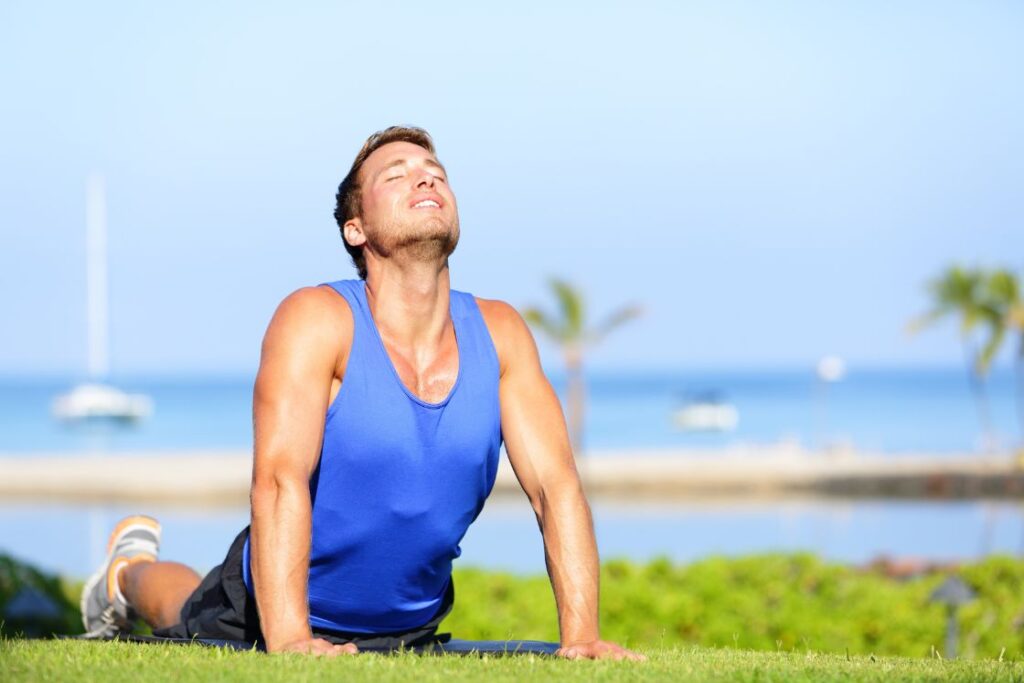 Image: Canva
Image: CanvaCobra Pose is effective for erectile dysfunction as it enhances blood circulation to the pelvic region and alleviates stress, both of which are crucial for healthy erectile function. Additionally, this pose strengthens the core and stimulates abdominal organs, promoting hormonal balance and overall vitality.
Lie on your stomach with your legs extended and feet pressing into the floor. Place your hands under your shoulders and press into them to lift your chest off the ground. Hold for 15-30 seconds while keeping your shoulders relaxed and your pelvis pressing into the floor. Exhale and lower back down. Repeat 2-3 times.8. Bridge pose
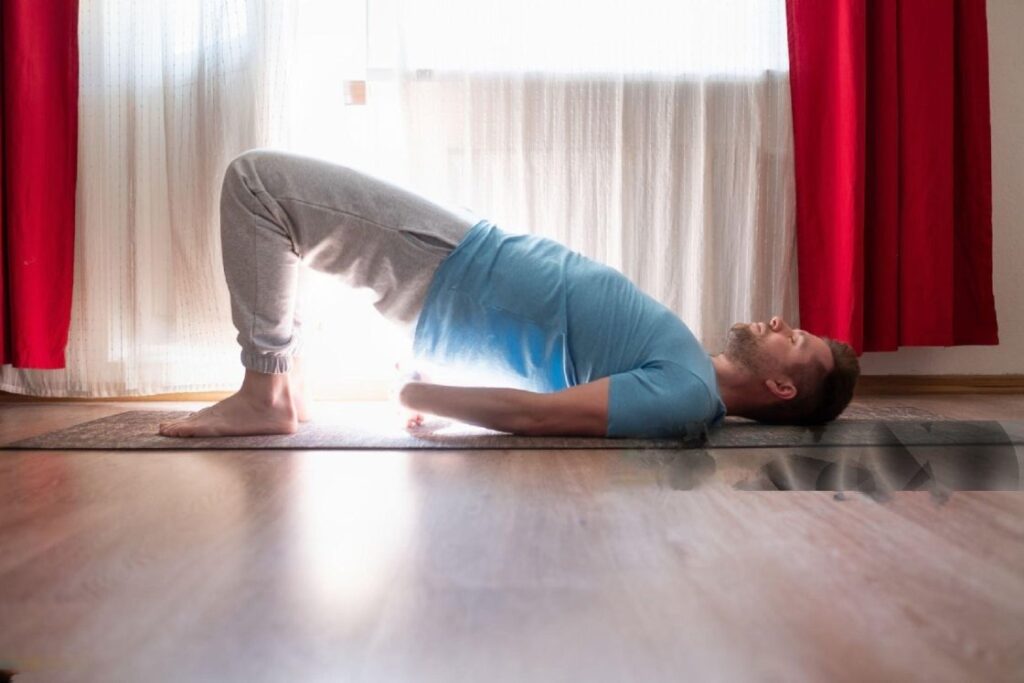 Image: Canva
Image: CanvaBridge Pose is beneficial for erectile dysfunction as it increases blood flow to the pelvic region, strengthens the lower back, and reduces stress. This pose engages the core and glutes, which helps support overall vitality and sexual health.
Lie on your back with your knees bent and feet flat on the floor, hip-width apart. Place your arms by your sides, palms facing down. Inhale and lift your hips towards the ceiling, pressing your feet and shoulders into the floor. Hold the pose for 15-30 seconds while engaging your glutes and core. Exhale and lower your hips back to the floor. Repeat 2-3 times.Yoga Mudras for erectile dysfunction
Apart from regular yoga poses, Kaya mudras of yoga are great stretching exercises to relieve erectile dysfunction.
Ashwini Mudra and Vajroli Mudra are two important mudras which focuses on pelvic muscles, hence helpful in controlling erectile dysfunction and premature ejaculation.
Ashwini Mudra – Contracting the sphincter muscles of the anus and then relaxing them. Vajroli Mudra – Drawing the urethra upward.What research says about yoga’s effectiveness for ED
A 2010 study on the impact of yoga on male sexual functioning found that participants, averaging 40 years old, showed significant improvement in sexual function after 12 weeks of yoga sessions.
Additionally, a study conducted at the National Institute of Ayurveda, Jaipur, India, reported positive results for sexual health when yoga was combined with Ayurvedic herbs like Gokshuradi. Taking a dose of 5 grams of Gokshuradi twice daily with water for 45 days effectively alleviated breathlessness during intercourse, excessive perspiration, premature ejaculation, pain during ejaculation, and erectile dysfunction.
Conclusion
Erectile dysfunction (ED) is an extremely common condition, affecting nearly 15 percent of men worldwide each year. In fact, it is estimated that almost all men will experience difficulty getting or maintaining an erection at some point in their lives.
While erectile dysfunction is not life-threatening, it can significantly impact quality of life. ED often leads to reduced mental satisfaction and increased stress, which can, in turn, cause sleep disturbances, low self-esteem, and diminished confidence.
Fortunately, a condition as prevalent as ED has been the subject of extensive medical research. Today, a variety of treatments are available, including physical therapies, diet plans, medications, and counseling sessions. It is important to explore all available options to find the best approach for your situation.
Yoga is a valuable option that can complement other treatments without interfering with them. Even if you choose to incorporate yoga into your routine, it does not necessarily replace other forms of therapy but can work alongside them at its own pace.

 Fransebas
Fransebas 
























